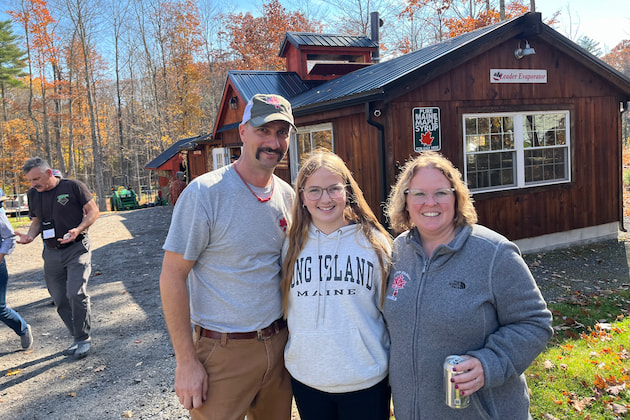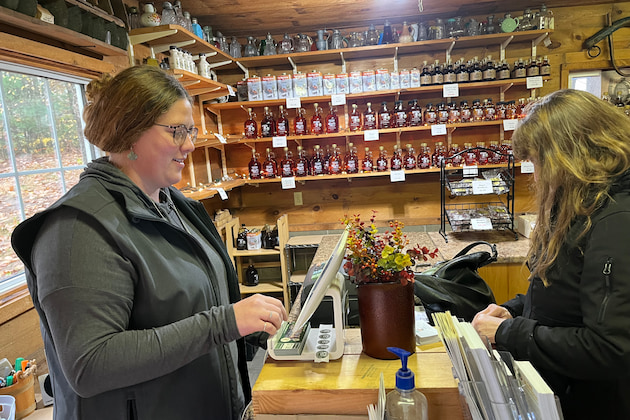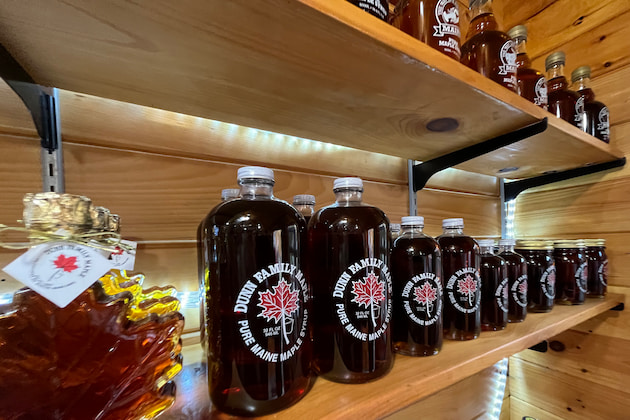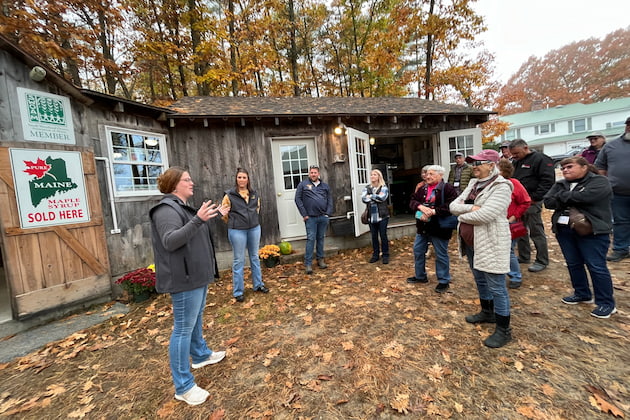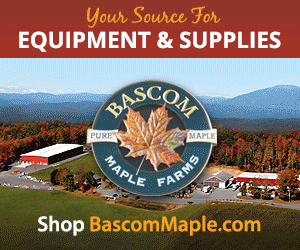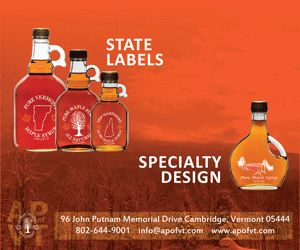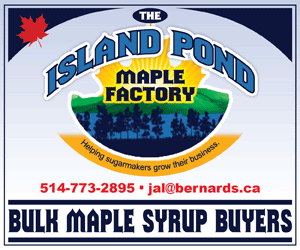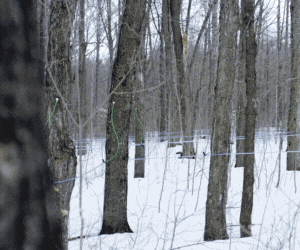UVM Proctor Page
Effective marketing strategies for sugarmakers
By ZAC SMITH, UVM EXT. | NOVEMBER 26, 2024
BERLIN, Vt.—Maple producers need a comprehensive marketing approach that blends traditional methods with digital strategies.
This integrated approach enhances brand visibility, engages customers, drives sales, and builds a loyal community.
By focusing on five key areas, maple businesses can create a sustainable brand that resonates with consumers and stands out in the marketplace.
Let’s start with branding. A strong brand identity is the foundation of successful marketing.
For maple producers, this goes beyond creating a logo or website. It's about developing a narrative that captures the essence of your products – their quality, tradition, and sustainability.
This story should be consistently reflected across all platforms and materials, from product packaging and promotional materials to your website and social media profiles.
Even staff uniforms at market stalls or events should align with your brand identity.
Consider elements that reflect your unique story, such as your production methods, family history, or commitment to environmental stewardship.
A compelling brand identity makes your products memorable and helps build customer loyalty.
Next is digital marketing. To attract new customers, maple producers should employ a multi-channel strategy that combines digital efforts with traditional marketing methods.
Digital marketing involves optimizing your website for search engines, using targeted online advertising, and maintaining active social media profiles.
Traditional methods include participating in local food fairs, farmers' markets, and agricultural events. Seek features in regional publications, food blogs, or local news outlets.
Collaborating with local businesses, restaurants, or tourism boards can also expand your reach.
This diverse approach ensures your brand reaches a wide audience, catering to different preferences and behaviors.
Whether customers are browsing online, attending a community event, or reading a local magazine, they should have opportunities to discover your maple products.
Next, I would recommend that sugarmakers make the most out of personal interactions with customers.
Engaging with your audience goes beyond digital interactions. Maple producers have unique opportunities to create memorable experiences.
Consider offering farm tours to showcase your production process, hosting tasting events to introduce new products or flavor profiles, or conducting workshops on maple syrup grading, cooking with maple, or sustainable forestry practices.
These in-person experiences complement online engagement strategies, fostering a sense of community among customers. Personal connections are invaluable, often transforming casual customers into passionate brand advocates.
Next, enhance sales opportunities.
To convert interest into sales, optimize every sales channel available. Ensure your website offers an intuitive online shopping experience.
Explore retail partnerships with local grocery stores, specialty food shops, and gift stores. Consider supplying restaurants, bakeries, or food manufacturers.
Participate in farmers' markets, craft fairs, and food festivals for direct sales. During peak seasons, set up tasting booths in high-traffic areas.
Pay special attention to packaging, making your products attractive for both personal use and gifting.
Offer samples when possible and consider creating gift sets or special seasonal packages to boost sales during key periods like holidays or maple syrup season.
Lastly, create community.
Building a loyal community involves more than just making sales.
Engage and reward your customers in meaningful ways. Implement a loyalty program that offers discounts or exclusive products to repeat customers.
Organize members-only events, such as special tastings or first access to limited-edition products. Encourage customers to share their experiences on social media, perhaps through contests or featured user content.
Seek and showcase customer reviews and testimonials. Create a referral program that rewards customers for introducing friends to your brand.
By cultivating a community, you create an inclusive space where customers feel valued and connected to your brand's story and success.
By integrating these five key strategies – brand identity, visibility, relationship building, commerce optimization, and community growth – maple producers can create a robust marketing approach.
This holistic strategy not only enhances brand awareness and customer engagement but also drives sales and builds a strong, loyal customer base.
In an increasingly competitive market, this comprehensive approach helps maple businesses thrive and grow sustainably.
These 5 main areas will each be broken down into interactive educational outreach for maple producers to improve their marketing strategies.
UVM Extension’s Agricultural Business team will be promoting this outreach throughout the near future.
Feel free to reach out to the team at zsmith4@uvm.edu















